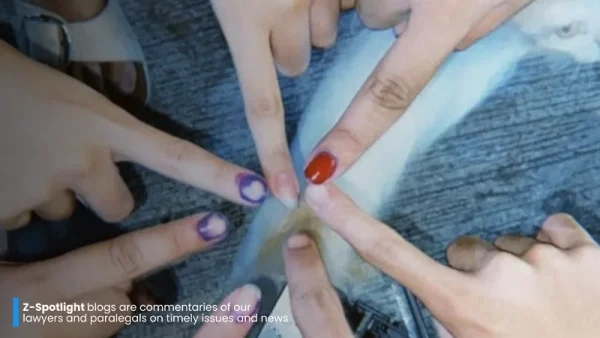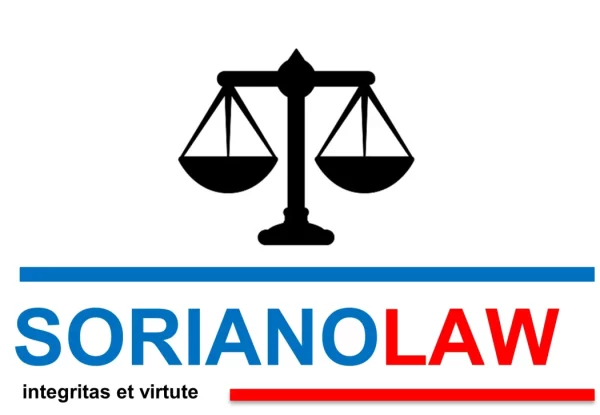The Philippines holds a National Election every three years for Congressional elections and every six years for Presidential elections. This second Monday of May this year is election time.
Looking back, the first national elections in the Philippines was held on September 16, 1935. The Filipino voters went to the polls to elect the first set of officials of the Philippine Commonwealth government as provided for in the 1935 Constitution signed by United States President Franklin D. Roosevelt on March 23, 1935.
Suffrage, as embodied in the Constitution, is the right of the people to vote in a political election. This is also enshrined in the Universal Declaration of Human Rights (UDHR), which recognizes and declares that genuine elections shall express the will of the people through universal and equal suffrage to be held by secret vote or by equivalent free voting procedures.
The right to participate in electoral processes is a basic and fundamental right in any democracy. It includes not only the right to vote, but also the right to urge others to vote for a particular candidate. The right to express one’s preference for a candidate is likewise part of the fundamental right to free speech. Thus, any governmental restriction on the right to convince others to vote or not vote for a candidate carries with it a heavy presumption of invalidity.[1]
Who are qualified[2] to vote in the Philippine elections?
- citizens of the Philippines
- at least18 years old
- a resident of the Philippines for at least one year and in the city or municipality where they propose to vote for at least six months immediately preceding the election
- those not disqualified by law.
Under the Overseas Absentee Voting Law, all citizens of the Philippines abroad, who are not otherwise disqualified by law, at least eighteen (18) years of age on the day of elections, may vote for the President, Vice-President, Senators and Party-List Representatives, as well as in all national referenda and plebiscites.
Who are disqualified[3] to vote in the Philippine elections?
- Any person sentenced to be imprisoned for not less than one year.
- Any person found to have committed rebellion, sedition, violation of the anti-subversion and firearms or those who have been adjudged by final judgment by competent court or tribunal of having committed any crime involving disloyalty to the duly constituted government.
- Insane or incompetent persons as declared by competent authority.
What are the rights of voters and candidates alike?
- Register during the period allotted for voter registration
- Be informed of the issues, platforms and personalities of the political candidates
- Participate in public debates
- Vote on election day
- Support or campaign for a candidate or party-list
- Protect the integrity of your own vote from any undue influence
- Support initiatives of civil society organizations to ensure honest and peaceful elections.
- Volunteer in organizations that work for clean and peaceful elections
- Watch out for instances of cheating in the elections and inform authorities and the rest of the electorate of such activities.
- Be vigilant in the counting and canvassing of votes
- Join or establish advocacies
- Attend consultations and public hearings, and participate in local special bodies.
However, only candidates for election can be elected for public office and launch a campaign. During election period and election day,[4] there are some prohibited activities which are as follows:
| PROHIBITED ACTS | WHO CAN VIOLATE |
| ELECTION PERIOD January 12, 2025 (Sunday) to June 11, 2025 (Wednesday) | |
| Bearing, carrying, or transporting firearms or other deadly weapons, unless authorized in writing by the Commission (Gun Ban).
(Sec. 32, R.A. No. 7166) |
Except:
|
| Use of security personnel or bodyguards by candidate, unless authorized in writing by the Commission.
(Sec. 33, R.A. No. 7166) |
|
| Alteration of territory of a precinct or establishment of a new precinct.
(Sec. 5, R.A. No. 8189) |
|
| Transfer or detail of officers and employees in the civil service, except upon prior approval of the Commission.
(Sec. 261 (h), OEC) |
|
| Organization or maintenance of reaction forces, strike forces, or similar forces.
(Sec. 261 (u), OEC) |
|
| Suspension of elective provincial, city, municipal, or barangay officer without prior approval of the Commission.
(Sec. 261 (x), OEC) |
|
| Campaigning on April 17, 2025 (Maundy Thursday) and April 18, 2025 (Good Friday).
(Sec. 5, R.A. No. 7166) |
|
| Giving donations by a candidate, his or her spouse, or any relative within the second civil degree of consanguinity or affinity, or his campaign manager, agent, or representative.
(Sec. 104, OEC) |
|
| Appointment or use of special policemen, confidential agents, or persons performing similar functions.
(Sec. 261 (m), OEC) |
|
| Illegal release of prisoners.
(Sec. 261 (n), OEC) |
|
| Campaigning on April 17, 2025 (Maundy Thursday) and April 18,2025 (Good Friday)
(Sec. 5 (b), R.A. No. 7166) |
|
| Appointment or hiring of new employees, creation of new positions, filling of new positions in a government office, agency, or instrumentality, whether national or local, including government-owned or controlled corporations, except upon prior authority of the Commission.
(Sec. 261 (g) (1), OEC) |
|
| Promotion or giving of salary increases, remuneration, or privileges to any government official or employee, including those in government-owned or controlled corporations.
(Section 261 (g) (2), OEC) |
|
| Release, disbursement or expenditures of public funds, except those enumerated in Section 261 (v) of the OEC.
(Sec. 261 (v), OEC) |
|
| Construction of public works, delivery of materials for public works except for projects or works exempted in Section 261 (v) of the OEC, and issuance of treasury warrants or similar devices.
(Sec. 261 (w), OEC) |
|
| EVE OF ELECTION DAY May 11, 2025 (Sunday) | |
| Campaigning.
(Sec. 5, R.A. 7166) |
|
| Giving or accepting free of charge, directly or indirectly, transportation, food or drinks or things of value; or giving or contributing, directly or indirectly, money or things of value for such purpose, by any candidate, political party, or organization, or any person.
(Sec. 89, OEC) |
|
| Selling, furnishing, offering, buying, serving, or taking intoxicating liquor, except hotels and other establishments duly cettified by the Department of Tourism as tourist oriented and habitually in the business of catering to foreign tourists upon prior authority of the Commission, and foreign tourists taking intoxicating liquor in said authorized hotels or establishments (Liquor Ban).
(Sec. 261 (dd), (1), OEC) |
|
| ELECTION DAY May 12, 2025 (Monday) | |
| Campaigning.
(Sec. 5, R.A. 7166) |
|
| Voting more than once or in substitution of another.
(Sec. 261 (z) (2) and (3) OEC) |
|
| Soliciting votes or undertaking any propaganda for or against any candidate or any political party within the polling place or within thirty (30) meters thereof.
(Sec. 261 (cc) (6), OEC) |
|
| Opening of booths or stalls of any kind for the sale, dispensing, or display of wares, merchandise, or refreshments, whether solid or liquid, or for any other purposes, within thirty (30) meters radius from the polling place.
(Sec. 261 (dd) (2), OEC) |
|
| Holding of fairs, cockfights, boxing, horse races, jai-alai, or any other similar sports.
(Sec. 261 (dd) (3), OEC) |
|
Candidates must also abide in the Fair Elections Act. This Act governs the media operations during elections to ensure fair access for candidates. Also, it ensures that bona fide candidates for any public office shall be free from any form of harassment and discrimination.
The candidates and voters have their own rights and responsibilities during the election. Each shall exercise these rights responsibly. Any violation of the prohibited acts may be dealt with accordingly.
On the last note, for the candidates, it is not only the goodwill and intention that matter, concrete plans and actions are also relevant. Once elected/ re-elected, the officials will serve the people.
For the voters who will cast their vote on Monday, remember to choose the candidates that will provide honest and transparent service to the populace and not be served by the people. The elected officials are seated to deliver social services, improve and strengthen policies, and to uphold the general welfare of the people.
One’s vote is valuable, and every vote counts. Thus, mind these notes.
[1] G.R. No. 206020, April 14, 2015
[2] Section 1, Article V, 1987 Philippine Constitution
[3] Section 118, Omnibus Election Code
[4] Team, C. W. D. (n.d.). Official COMELEC website :: Commission on Elections. COMELEC. https://comelec.gov.ph/?r=2025NLE/Resolutions/res10999

Photo taken by Silina Alvarado
